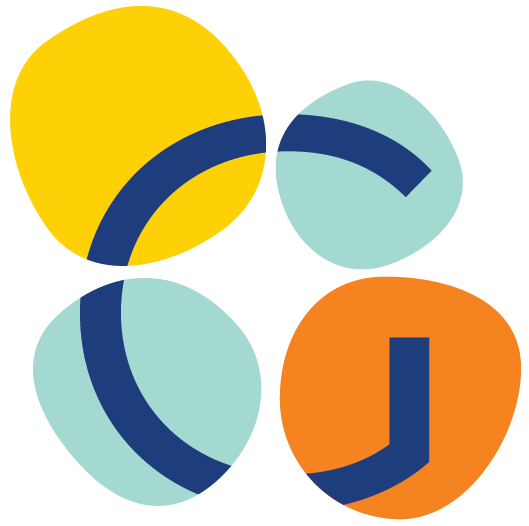Having the opportunity to explore the outdoors has long been linked to health benefits. In a recent study, The potential of outdoor contexts within community-based rehabilitation to empower people with disabilities in their rehabilitation, researchers found that getting outside can promote autonomy, community-building, and positivity for people with disabilities.
Since 2020, The Guild’s adult program has partnered with Waypoint Adventure, a local nonprofit that uses experiential and adventure-based programs to transform the lives of individuals with disabilities and their communities. We sat down with Carly Steinauer, Robb Dunn, and Theresa Scott, Program Coordinators with Waypoint, to discuss the study and why increasing access to the outdoors is crucial.
Can you start by briefly explaining Waypoint’s mission and programs?
Waypoint Adventure’s mission is to challenge youth and adults with disabilities to discover their purpose, talents, and strengths through the transforming power of adventure. We provide 11 different program types serving individuals ages six and up through all seasons. We partner with schools, community groups, service organizations, and the general public to deliver accessible adventure education experiences. Our programs teach lessons in teamwork, communication, perseverance, challenge, growth, decision-making, and community, among others. Our programs are made accessible by considering the cognitive and physical supports needed for each participant.
The study highlights how engaging in outdoor experiences can increase autonomy. How do you see this growth on your trips?
At Waypoint, our trip leaders are not just tour guides but educators. We facilitate adventure activities and aim to teach the skills needed to be as independent as possible in those activities. That looks different for everyone! This way, everyone can be part of the adventure, not just a spectator. We encourage all participants to engage and learn to their level of comfort. We also promote reflection as part of our programs.
Often, we hear from folks that they achieved something they initially didn’t think was possible or expressed doubt at the beginning of a program. For example, we began working with a student with autism about four years ago when he came on a kayaking program with his school. During the first year, the student’s challenge was just to touch the boat. Over four years, this student sat in a boat on land, then tolerated being in a boat on water for a few minutes, then held a paddle, and eventually, four years later, was able to sit in a boat for two hours and paddle along a river with a group.
Study authors note that people with disabilities who want to engage in outdoor activities “are often restricted by physical, psychological and social barriers, as well as misconceptions about their abilities,” (p. 3992). What barriers exist in the field of outdoor education that Waypoint addresses through its programming?
There’s a general lack of accessibility training and knowledge among staff in the field. Many outdoor education programs around the world were designed with an ableist lens and don’t provide a structure that is inclusive of diverse learners. At Waypoint, we include elements of universal design for learning in lesson planning; for example, we start every program by reviewing a schedule of events with visual and written aids.
The benefits that folks with disabilities experience from adventure are the same as the benefits folks without disabilities experience. The opportunity to do something outside of your comfort zone, connect with your natural surroundings, and be in community with others inevitably leads to personal growth for all individuals. Folks with IDDs are not often given the tools to be included in these opportunities, which is why we believe providing access is so important!
Do you have a favorite memory from one of your trips?
Yes, my favorite memory is from this winter! One adult resident from The Guild had gone skiing with us previously. He showed up for the second time feeling very nervous and doubting his ability. He started first using a ski walker, then progressed to holding a ski pole to keep balance, and finally, when he felt confident enough, he could hold two ski poles and ski through the course independently. You could see the sense of pride and accomplishment on his face! It was great to see him progress from doubting himself to doing something challenging, independently.



